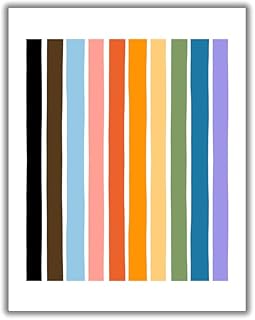Renowned artist Deborah Kelly, overwhelmed by grief from the Black Summer fires, sought solace in creating her own religion after mainstream faiths failed to resonate with her values. Drawing inspiration from an unlikely source, Donald Trump, she birthed Creation in 2020, a religion anchored in queer inclusion, insurrection, science fiction, and climate change activism. This marked a significant shift in her 40-year artistic career, culminating in a unique blend of purposeful hysteria, pleasure, poetry, and activism.
Collaborating with poets, musicians, and creatives, Deborah crafted sacred music, liturgy, and a holy text for Creation, aiming to challenge the status quo and provide a sanctuary for those who felt marginalized by traditional religious institutions. The performances of Creation are a sensory delight, with elaborate costumes inspired by art and nature, symbolizing a departure from conventional religious norms.
Initially conceived as a parody, Creation evolved into a profound statement against the exclusion of queer and gender diverse individuals in established institutions. Composer Lex Lindsay, a key collaborator, viewed this endeavor as a means to reclaim religious freedoms while advocating for environmental conservation, emphasizing a departure from practices that harm the planet.
For Deborah, Creation represented a personal journey of liberation from the constraints of her religious upbringing. Similarly, Sepora, a participant in the choir, found resonance in the religion’s ethos, having felt alienated by her previous church’s rejection of her queerness. Through Creation, she discovered a renewed sense of belonging and purpose, bridging the gap between her cultural heritage and personal identity.
Creation challenged traditional religious structures by adopting a nonconformist approach to music and choir organization. Eschewing conventional labels like ‘hymns,’ the religion’s songs are termed ‘hers,’ reflecting a broader ethos of inclusivity and diversity. The choir’s composition, based on elements like earth, fire, air, and water, allowed members to participate without conforming to gendered roles.
Indigenous artist Juundaal Strang-Yettica found solace in Creation’s creative process and sense of community, contributing prayers and collaborating on songs that underscored the need for unity between cultures. Despite grappling with social anxiety and agoraphobia, Juundaal found empowerment in performing, transcending her personal struggles to express herself artistically.
Creation, while embodying joy and playfulness, also serves as a platform for acknowledging shared grief, particularly concerning climate change and LGBTQ+ discrimination. Deborah, deeply concerned about environmental issues, sees Creation as a response to the impending threats of mass extinction, offering a space for collective lament and solace amidst a fragmented world.
Ultimately, Creation invites followers to interpret and derive meaning from its offerings according to their individual perspectives. Whether as a form of activism, artwork, or personal spirituality, the religion provides a unique pathway for individuals like Sepora, who have found profound significance and a sense of home within its unconventional embrace.
📰 Related Articles
- ZiMAD and The Hunger Project Unite Against World Hunger
- Younger Brits Embrace Healthier Breakfast Choices, Shifting Traditional Fare
- Young Men Embrace Russian Orthodox Church for Traditional Masculinity
- Young American Men Embrace Traditional Masculinity in Orthodox Christianity
- Yankees Favored to Win Against Athletics in MLB Showdown






